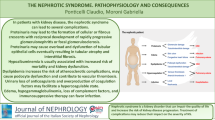Abstract.
After decades of neglect, complement has been rediscovered as a potent mediator and diagnostic indicator of inflammation and rejection in organ transplants. In part, this reflects a better understanding of the biology of complement, but it also reflects changes in clinical practice. The relevance of complement to clinical transplantation has increased as access to transplantation continues to be extended. Extended criteria for organ donors include older donors and non-heart beating donors. Simultaneously, the criteria for recipients have been extended to include more presensitized and blood group incompatible recipients. All of these variables can increase complement activation. As a result, several components of complement have received attention as potential diagnostic tools, and, with more sophisticated reagents, evidence of complement activation has been found in larger numbers of biopsy samples. Understanding the biology of complement is important to appreciate fully the diagnostic and mechanistic implications of complement activation in organ transplants. Mechanistically, a series of effector molecules in the complement cascade mediate proinflammatory functions that can account for chemotaxis and activation of cells of the innate immune system, such as granulocytes and monocytes. Simultaneously, many of these same complement mediators activate and disrupt the endothelial cell interface between the recipient and the transplant. In addition, there is growing appreciation that complement can stimulate B and T lymphocytes of the adaptive immune system. More recent evidence indicates that complement participates in the non-inflammatory clearance of apoptotic cells. Therefore, the complement cascade can be activated by multiple mechanisms and various components of complement can modulate the response to transplants in different directions.
Similar content being viewed by others
Author information
Authors and Affiliations
Rights and permissions
About this article
Cite this article
Baldwin, W.M., Ota, H. & Rodriguez, E.R. Complement in transplant rejection: diagnostic and mechanistic considerations. Springer Semin Immunopathol 25, 181–197 (2003). https://doi.org/10.1007/s00281-003-0133-3
Issue Date:
DOI: https://doi.org/10.1007/s00281-003-0133-3




